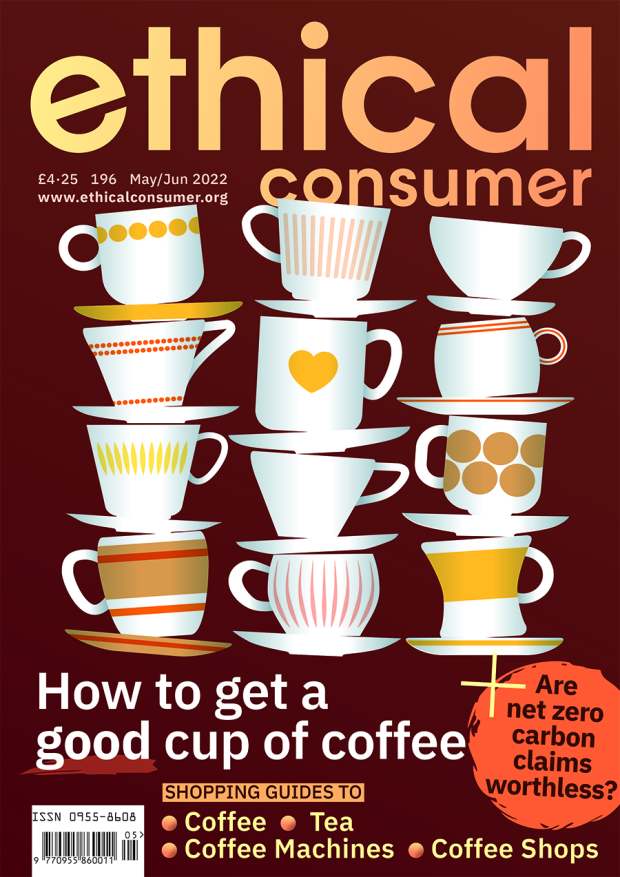When it comes to the ethics of buying a coffee in a coffee shop, there are more issues to consider than just the coffee itself and the ethical sourcing claims of the shops.
Contemporary concerns, for example, include single-use coffee cups and reusable cups, whether you have to pay a surcharge for plant milk and whether the shops pay any corporation tax in the UK. We discuss all these issues below and explore some solutions.
Since our last guide in 2019, Coca-Cola has taken over Costa Coffee, which has caused its score to plummet from 6 to 2. And Nero Group has added Coffee#1 to its portfolio which already included Caffè Nero and Harris + Hoole.
Costa Coffee is the most popular coffee shop and has nearly three times more outlets than its nearest competitor Starbucks. You can buy a Costa coffee not only in their high-street shops and from motorway service stations, but also from their Costa Express machines which are everywhere, from petrol stations, gyms, and supermarkets, to hospitals and sixth form colleges.
Caffè Nero is the next most popular place for a coffee after Starbucks. These big three account for over 80% of all coffee shop visits.
But Costa Coffee and Starbucks are the least ethical of the shops we cover, so ethical consumers could try to seek out more ethical alternatives like local independent coffee shops (see box at the end on what to look for in an independent shop).
Boston Tea Party, at the top of our score table, is a chain with only around 23 outlets (compared to Costa’s 2,672). Greggs scores best of the coffee shops that you can find in most towns and cities.










